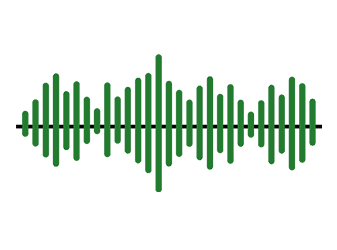Frank Morgan
This is the approved revision of this page, as well as being the most recent.
| Frank Morgan | |
|---|---|
| Born | New York City |
| Nationality | United States of America |
Frank Morgan | |
|---|---|
 Morgan in Half Moon Bay, California, 1986 | |
| Background information | |
| Born | December 23, 1933 Minneapolis, Minnesota, U.S. |
| Died | December 14, 2007 (aged 73) Minneapolis, Minnesota, U.S. |
| Genres | Bebop |
| Occupation(s) | Musician |
| Instrument(s) | Alto saxophone |
| Years active | 1949–2007 |
| Labels | Contemporary, Telarc, Antilles, HighNote |
Frank Morgan (December 23, 1933 – December 14, 2007) was a jazz saxophonist with a career spanning more than 50 years. He mainly played alto saxophone but also played soprano saxophone. He was known as a Charlie Parker successor who primarily played bebop and ballads.
Biography[edit | edit source]
Early life (1933–1947)[edit | edit source]
Frank Morgan was born in Minneapolis, Minnesota in 1933, but spent most of his childhood living with his grandmother in Milwaukee, Wisconsin while his parents were on tour. Morgan's father Stanley was a guitarist with Harlan Leonard and the Rockets and The Ink Spots, and his mother, Geraldine, was a 14-year-old student when she gave birth to him. Morgan took up his father's instrument at an early age, but lost interest the moment he saw Charlie Parker take his first solo with the Jay McShann band at the Paradise Theater in Detroit, Michigan. Stanley introduced them backstage, where Parker offered Morgan advice about starting out on the alto sax, and they met at a music store the following day. Morgan, seven years old at the time, assumed they'd be picking out a saxophone, but Parker suggested he start on the clarinet to develop his embouchure. Morgan practiced on the clarinet for about two years before acquiring a soprano sax, and finally, an alto. Morgan moved to live with his father (by that time divorced) in Los Angeles, California at the age of 14, after his grandmother caught him with marijuana.
Los Angeles (1947–1955)[edit | edit source]
As a teenager Morgan had opportunities to jam with the likes of Dexter Gordon and Wardell Gray on Sunday afternoons at the Crystal Tearoom. When he was just 15 years old, Morgan was offered Johnny Hodges's spot in Duke Ellington's Orchestra, but Stanley deemed him too young for touring. Instead he joined the house band at Club Alabam where he backed vocalists including Billie Holiday and Josephine Baker. Morgan stayed in contact with Parker during these years, finding himself in jam sessions at Hollywood celebrities' homes when Parker visited L.A. On November 1, 1954, Morgan cut five tracks with the Kenny Clarke Sextet for Savoy Records, four of which were released with Clarke billed as the leader, with "I've Lost Your Love" credited to writer Milt Jackson as leader. Morgan recorded an all-star date with Wild Bill Davis and Conte Candoli on January 29, 1955 and participated in a second recording session on March 31, 1955, with Candoli, Wardell Gray, Leroy Vinnegar and others, which were combined and released in 1955 as Morgan's first album, Frank Morgan, by GNP Crescendo Records. Later releases also included five tracks cut at the Crescendo Club in West Hollywood on August 11, 1956, with a sextet featuring Bobby Timmons and Jack Sheldon. The album copy hailed Morgan as the new Charlie Parker, who had died the same year. In his own words, Morgan was "scared to death" by this and "self-destructed".
Addiction and incarceration (1955–1985)[edit | edit source]
Following in the footsteps of Parker, Morgan had started taking heroin at 17, subsequently became addicted, and spent much of his adult life in and out of prison. Though he stayed off heroin for the last two decades of his life, Morgan took methadone daily. His 1990 album Mood Indigo went to number four on the Billboard jazz chart. HighNote Records eventually released three albums worth of material from a three-night stand at the Jazz Standard in New York City in November, 2003. Morgan also participated in the 2004 Charlie Parker Jazz Festival in Tompkins Square Park.
After moving to Minneapolis in the fall of 2005, Morgan headlined the 2006 Twin Cities Hot Summer Jazz Festival and played duets with Ronnie Mathews at the Dakota Jazz Club in Minneapolis and George Cables at the Artists' Quarter in St. Paul. Morgan also performed at the 2006 East Coast Jazz Festival in Washington, D.C., and on the West Coast at Yoshi's and Catalina's. His last gig in Minneapolis featured Grace Kelly, Irv Williams, and Peter Schimke at the Dakota on July 1, 2007.
For one of Morgan's final recordings, he composed and recorded music for the audiobook adaptation of Michael Connelly's crime novel The Overlook (2007), providing brief unaccompanied sax solos at the beginning and end of the book, and between chapters. Morgan is mentioned in the book by lead character Harry Bosch, a jazz enthusiast.
Shortly before his death, Morgan completed his first tour of Europe.
Death[edit | edit source]
Frank Morgan died in Minneapolis on Friday, December 14, 2007, from complications due to colorectal cancer, nine days before his 74th birthday. A memorial service featuring members of Morgan's family and a performance by Irv Williams was held at the Artists' Quarter on Sunday, December 23. The Penguin Guide to Jazz on CD called Morgan "a passionate improviser" who "organizes his solos in a songful, highly logical way". Comparing Morgan and Art Pepper, C. Michael Bailey wrote that "both possessed a beautifully spearmint-dry ice tone in their early careers and both were unsurpassed as ballad interpreters," and that Morgan showed "why bop still matters so much". Author Michael Connelly co-produced a documentary film about Morgan, Sound of Redemption: The Frank Morgan Story, directed by N.C. Heikin, which had its world premiere at the Los Angeles Film Festival on June 14, 2014, and was followed the next day by a tribute concert at The Grammy Museum, featuring George Cables, Ron Carter, Mark Gross, Grace Kelly, and Roy McCurdy.
Discography[edit | edit source]
As leader[edit | edit source]
- Frank Morgan (Gene Norman Presents, 1955)
- Easy Living (Contemporary, 1985)
- Lament (Contemporary, 1986)
- Double Image (Contemporary, 1986)
- Bebop Lives! (Contemporary, 1986)
- Major Changes (Contemporary, 1987)
- Yardbird Suite (Contemporary, 1988)
- Reflections (Contemporary, 1989)
- Mood Indigo (Antilles, 1989)
- A Lovesome Thing (Antilles, 1990)
- Quiet Fire (Contemporary, 1987 [1991]) with Bud Shank
- You Must Believe in Spring (Antilles, 1992)
- Listen to the Dawn (Antilles, 1993)
- Love, Lost & Found (Telarc, 1995)
- Bop! (Telarc, 1996)
- City Nights: Live at the Jazz Standard (HighNote, 2004)
- Raising the Standard (HighNote, 2003 [2005])
- Reflections (HighNote, 2006)
- A Night in the Life (HighNote, 2003 [2007])
- Twogether (HighNote, 2005 [2010]) with John Hicks
- Montreal Memories (HighNote, 1989 [2018]) with George Cables
As sideman[edit | edit source]
With Teddy Charles
- Adventures in California (Fresh Sound Records, 1953)
With Kenny Clarke
- Telefunken Blues (Savoy, 1955)
With Art Farmer
- Central Avenue Reunion (Contemporary, 1990)
With Terry Gibbs
- The Latin Connection (Contemporary, 1986)
With Wardell Gray
- Wardell Gray Memorial, Vol. 1 (Prestige, 1983) recorded in 1953
With Milt Jackson
- Meet Milt Jackson (Savoy, 1954)
With Abbey Lincoln
- Who Used to Dance (Verve, 1996)
With Lyle Murphy
- Four Saxophones in Twelve Tones (GNP/Crescendo, 1955)
With Mark Murphy
- Night Mood (Milestone, 1986)
With Ben Sidran
- Mr. P's Shuffle (Go Jazz, 1996)
With L. Subramaniam
References[edit | edit source]
- Artists
- Articles with short description
- Short description is different from Wikidata
- Articles with hCards
- Articles with ISNI identifiers
- Articles with VIAF identifiers
- Articles with WORLDCATID identifiers
- Articles with BNE identifiers
- Articles with BNF identifiers
- Articles with GND identifiers
- Articles with J9U identifiers
- Articles with LCCN identifiers
- Articles with NLA identifiers
- Articles with NTA identifiers
- Articles with FAST identifiers
- Articles with MusicBrainz identifiers
- Articles with RERO identifiers
- Articles with SNAC-ID identifiers
- Articles with SUDOC identifiers
- 1933 births
- 2007 deaths
- American jazz saxophonists
- American male saxophonists
- Musicians from Minneapolis
- Contemporary Records artists
- Verve Records artists
- Telarc Records artists
- Savoy Records artists
- HighNote Records artists
- Antilles Records artists
- GNP Records artists
- 20th-century American saxophonists
- African-American jazz musicians
- Jazz musicians from Minnesota
- 20th-century American male musicians
- American male jazz musicians
- Jefferson High School (Los Angeles) alumni
- 20th-century African-American musicians
- 21st-century African-American people


